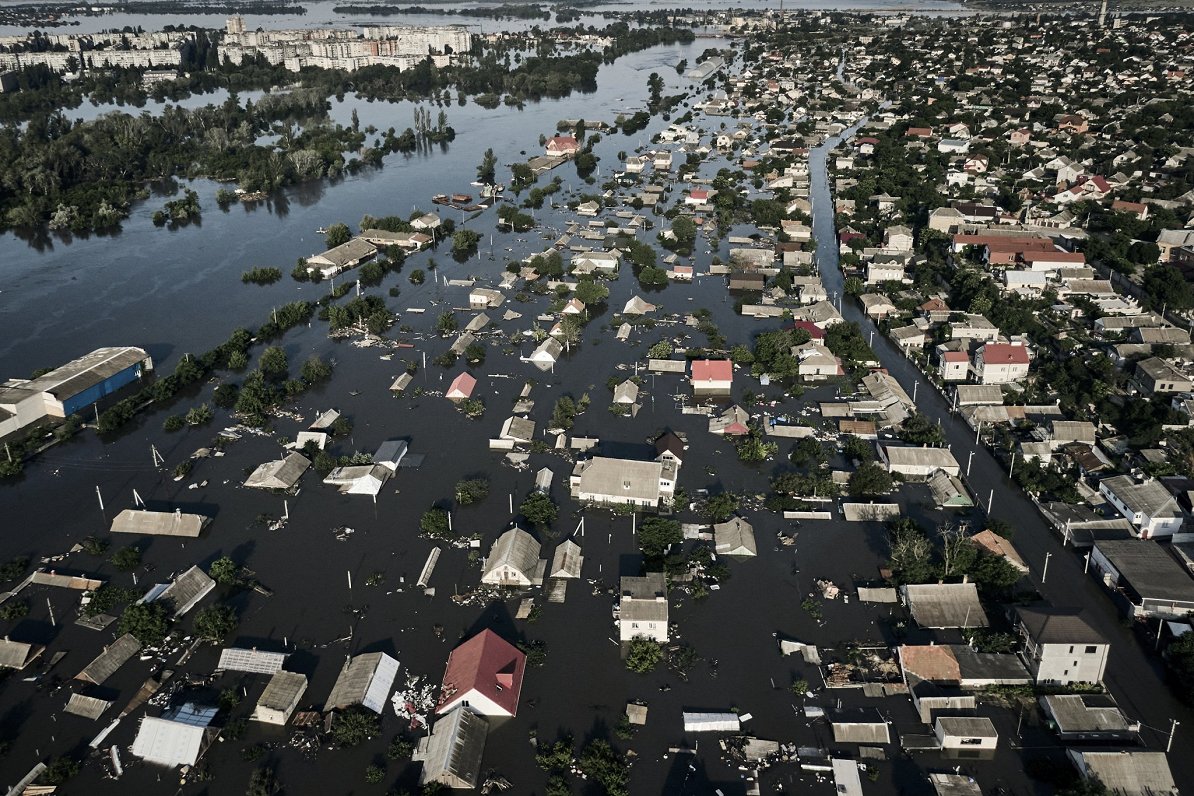"The decision adopted by the Cabinet of Ministers provides for Latvia to make a contribution to the Ukrainian Government to assist in the rapid, coordinated and targeted acquisition of equipment, materials and machinery to mitigate the immediate consequences of the flooding. The request for assistance from the Ukrainian side includes urgent needs such as water tankers to transport drinking water, rescue boats and vehicles to move through flooded areas, heavy duty pumps, drinking water, water filters, food parcels and other items," said a government press release.
"Latvia strongly condemns Russia's aggression in Ukraine. The destruction of the dam of the Kakhovka HPP is yet another deliberate Russian attack on Ukraine's critical civilian infrastructure. The destruction of the dam has caused an ecological, humanitarian and agricultural crisis of vast proportions in the southern region of Ukraine, the true extent of which is still being determined. The risks of further chemical spills and the potential impact of the crisis on the cooling processes of the Zaporizhzhia Nuclear Power Plant are also of concern," it added, calling on the international community to rapidly provide all forms of assistance to Ukraine to mitigate the consequences of the disaster.
Russia's actions qualify as a war crime under the Article 56, Paragraph one of the Protocol Additional of 8 June 1977 to the Geneva Conventions of 12 August 1949, and relating to the Protection of Victims of International Armed Conflicts (Protocol I). It states that works or installations containing dangerous forces, namely dams, dykes and nuclear electrical generating stations, shall not be made the object of attack, even where these objects are military objectives, if such attack may cause the release of dangerous forces and consequent severe losses among the civilian population.





























